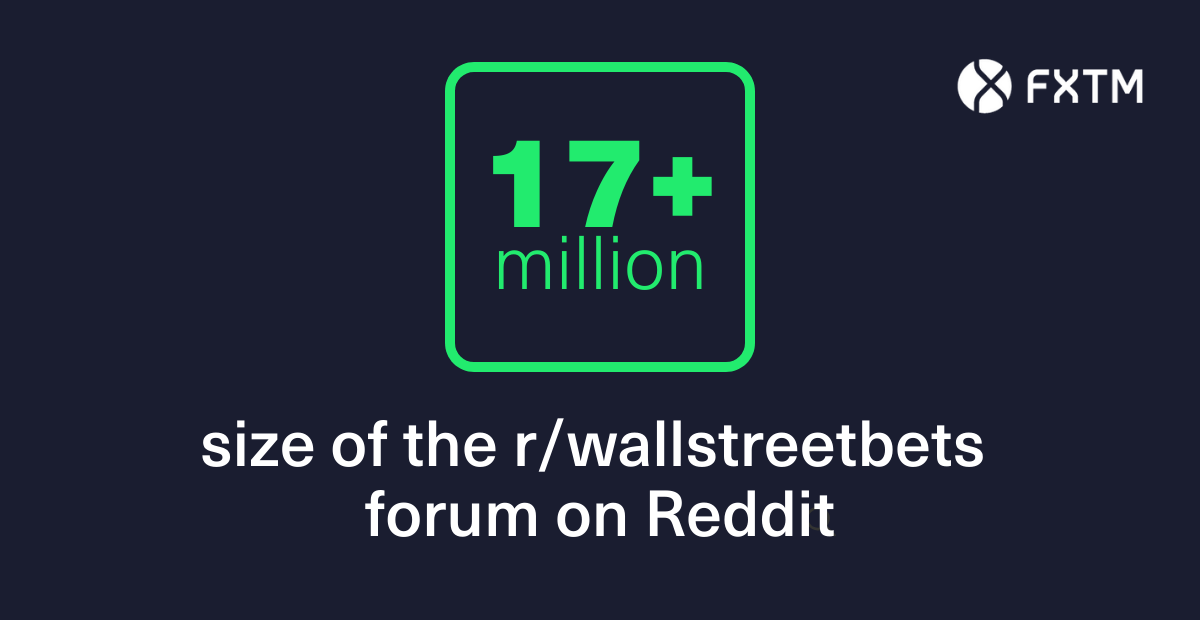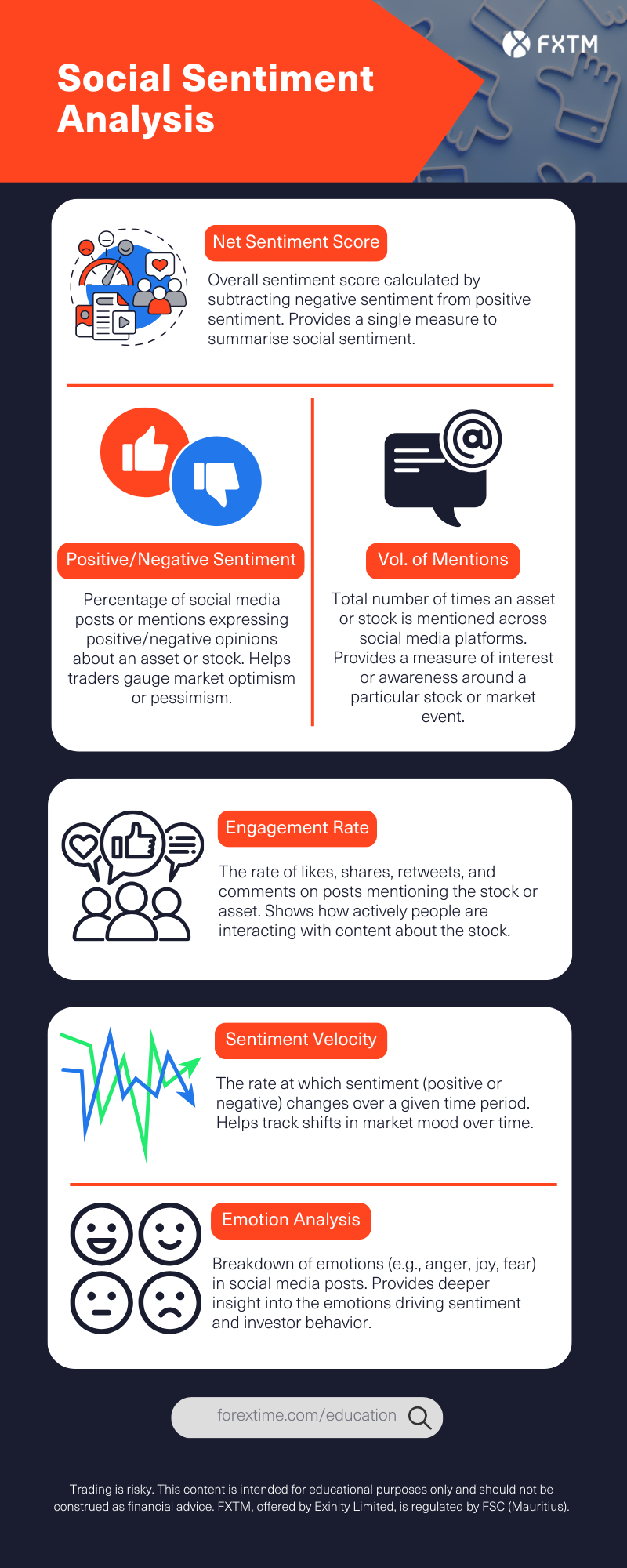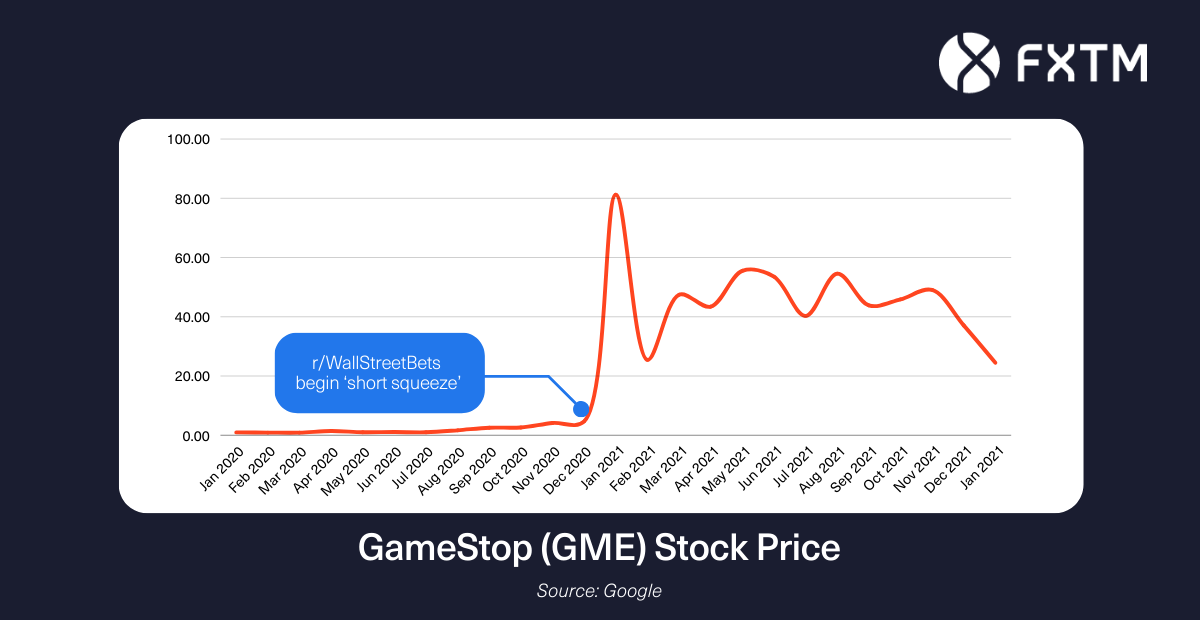How Social Media Has Impacted Trading
The GameStop short squeeze. Dogecoin rallying off an Elon Musk tweets. In recent years, social media has dramatically reshaped the world of trading, empowering retail investors and shaking up the market.
While the traditional trading landscape was once dominated by financial institutions and seasoned investors, social communities like Twitter, Reddit, and Discord have democratised access to market information and trading opportunities.
In this article, we will explore the ways in which social media has impacted trading and how you can use these platforms to your advantage.
Trading Goes Social
The massive impact of social media on society cannot be overstated. It has transformed the way we communicate, share information, and connect with one another.
More recently, social media has also significantly impacted trading - providing unprecedented access to information and fostering real-time communication among traders and investors of all experience levels.
Platforms like Twitter/X, Reddit and Telegram enable users to share insights, strategies, and market conditions, traders easier than ever before.
Plus, the interactive nature of these platforms allows for greater engagement, as traders can discuss trends and collaborate on analysis, enhancing their overall understanding of the market.
Ultimately, social media has transformed trading into a more inclusive and dynamic environment, empowering retail investors to challenge the established norms of the financial world.
The Rise of Online Trading Communities
The rise of social communities focused on trading and investing is reshaping the trading landscape.
Platforms like Twitter/X, Reddit, Telegram, and Discord have become vibrant hubs for both novice and seasoned traders and investors to share ideas and insights.
These digital spaces are buzzing with real-time information, news, and analyses - all generated and moderated by everyday people.

On Twitter/X, you can easily follow hashtag feeds and finance-savvy influencers to stay updated. Meanwhile, Reddit's subreddits like r/wallstreetbets create lively discussions around trading strategies and market speculation.
Telegram and Discord take it a step further, offering more intimate group settings. Here, traders can engage in targeted discussions, share resources, and even join live audio sessions to tap into collective market wisdom.
This democratisation of information is game-changing. With borderless accessibility, traders now have the chance to leverage diverse community knowledge, levelling the playing field against traditional institutional investors.
Trading and Social Media
Influence of Social Media on Stock Prices
One of the most important and substantial impacts of social media on trading is its influence on real-world stock prices.
Social media platforms have become a powerful tool for disseminating information quickly and widely, making them an essential source of market news and sentiment.
A single tweet from a high-profile individual or influencer can significantly affect the price of a stock.
For example, in 2018, Tesla CEO Elon Musk tweeted that he was considering taking Tesla private at $420 per share. The tweet caused Tesla's stock price to soar by over 11%, leading to an investigation by the Securities and Exchange Commission (SEC).
This incident highlights the potential for social media to impact stock prices, often with little warning or control.
Impact on Market Manipulation
While social media has brought many benefits to trading, it has also raised concerns about market manipulation.
With the ability to disseminate information quickly and widely, social media can be used to spread false or misleading information that can manipulate stock prices.
This type of behaviour has become more prevalent in recent years, with individuals and groups using platforms like Reddit to coordinate buying and selling activities for a specific stock, known as a "pump and dump" scheme.
A significant instance of social media market manipulation involved the biopharmaceutical company, CytoDyn.
In mid-2020, posts began circulating on various platforms, including Reddit and online message boards, exaggerating the potential of CytoDyn's drug, leronlimab, as a treatment for COVID-19.
These posts sparked a surge in interest and investment from retail traders, driving up the company's stock price significantly. However, subsequent investigations uncovered that much of the hype was based on unsubstantiated claims and misleading information about the drug's efficacy.
This event serves as a cautionary tale, showcasing how misinformation spread through social media can lead to sudden and volatile movements in stock prices, often to the detriment of uninformed investors.
Stories like these have prompted regulators to closely monitor social media activity related to the stock market and take appropriate action against any illegal activities.
Social Sentiment Analysis
Another significant way social media has changed trading and investing is through the rise of social sentiment analysis.
Traders can now leverage advanced algorithms that evaluate the emotions and opinions expressed on platforms like Twitter and Reddit, translating this data into actionable insights.
By monitoring the general sentiment surrounding specific stocks or market trends, traders can gain a clearer understanding of public perception and potential market movements.
This shift allows retail traders to make more informed decisions, harnessing the collective power of online communities to enhance their trading strategies.
Consequently, understanding social sentiment not only enhances individual investment choices but also creates a more dynamic and responsive trading environment overall.

Meme Investing and Market Volatility
One of the most striking phenomena to emerge from this shift is "meme investing."
This involves social media users making crowd-sourced leveraged bets on stocks, options, and cryptocurrencies. While this collective enthusiasm can lead to extraordinary gains, it often results in chaotic volatility that strains market infrastructure.
For instance, the GameStop surge in early 2021 showcased how retail investors could collectively drive up the price of a stock.
In January 2021, a group of retail investors on the subreddit r/wallstreetbets sparked a buying frenzy that propelled GameStop, a seemingly struggling video game retailer, into the spotlight.

The stock soared from under $20 to a peak of $483 within weeks, bewildering traditional financial analysts and institutions.
This unprecedented rise was partly fuelled by the "short squeeze" phenomenon, as hedge funds heavily short-selling GameStop shares faced mounting losses and were forced to buy back shares at higher prices to cover their positions.
The saga highlighted the potential for collective retail investor action to disrupt established market dynamics.
Collecting trade ideas, swapping tips, and hyping stocks became popular activities in virtual trading communities, transforming social media platforms into powerful influencing tools.
Yet, this frenzied environment can be a double-edged sword.
The Danger of Social Media and Trading
In today’s trading ecosystem, social media can mislead naive traders who chase rewards without grasping the underlying risks.
The allure of quick profits often showcased online can draw them in, only for them to end up on the losing side of their trades.
Extreme cases have revealed significant losses, underscoring the dangerous gap between the enticing potential for gain and the very real risk of loss that social media can obscure.
A good example of this is the downfall of Archegos Capital Management in 2021.
Archegos, a family office run by Bill Hwang, took advantage of significant leverage to build massive positions in various stocks, such as ViacomCBS and Discovery.
As rumours and speculation spread across social media platforms regarding the sustainability of these investments, Archegos was put in a tricky situation.
This social fever quickly spread and, combined with a series of margin calls from banks, the firm faced rapid liquidation as their investments started to drop.
This led to the unwinding of billions of dollars in positions and a loss estimated north of $20 billion.
The event not only exposed the risks associated with high leverage and social media-driven speculation but also highlighted the vulnerabilities of financial institutions entangled in such trades.
How to Protect Yourself from Social Media Hype
Given the rapid evolution of social media's role in trading, it becomes crucial for both novice and experienced investors to educate themselves about the risks and opportunities.
Understanding market fundamentals, conducting thorough research, and employing disciplined risk management strategies are vital components of successful trading.
Key Insights for Traders
- Conduct Your Own Research:
- Relying solely on social media for trade ideas can be risky. It's essential to verify information through multiple credible sources.
- Understand the Risks:
- Be aware that social media hype can inflate stock prices beyond their intrinsic value, leading to volatile market conditions.
- Manage your Exposure:
- Employ strategies such as stop-loss orders to protect against significant losses. Diversify your portfolio to mitigate risks associated with individual stock volatility.
- Join Reputable Communities:
- Engage with well-established trading communities like FXTM that prioritise education and responsible investing over hype and speculation.
The Bottom Line
The advent of social media has undeniably created new opportunities for investors by providing access to a wealth of information and a community of like-minded individuals. However, it also necessitates a more vigilant approach to trading.
At FXTM, we have a long history of guiding investors toward financial success.
Our customer-oriented services are designed to empower you with the knowledge and tools you need to navigate this dynamic landscape confidently.
Whether you're a beginner or an experienced trader, our resources can help you make informed decisions and achieve your financial goals.
Ready to trade with real money?
Open accountPut your knowledge to the test
Start trading with a leading broker that gives you more.
